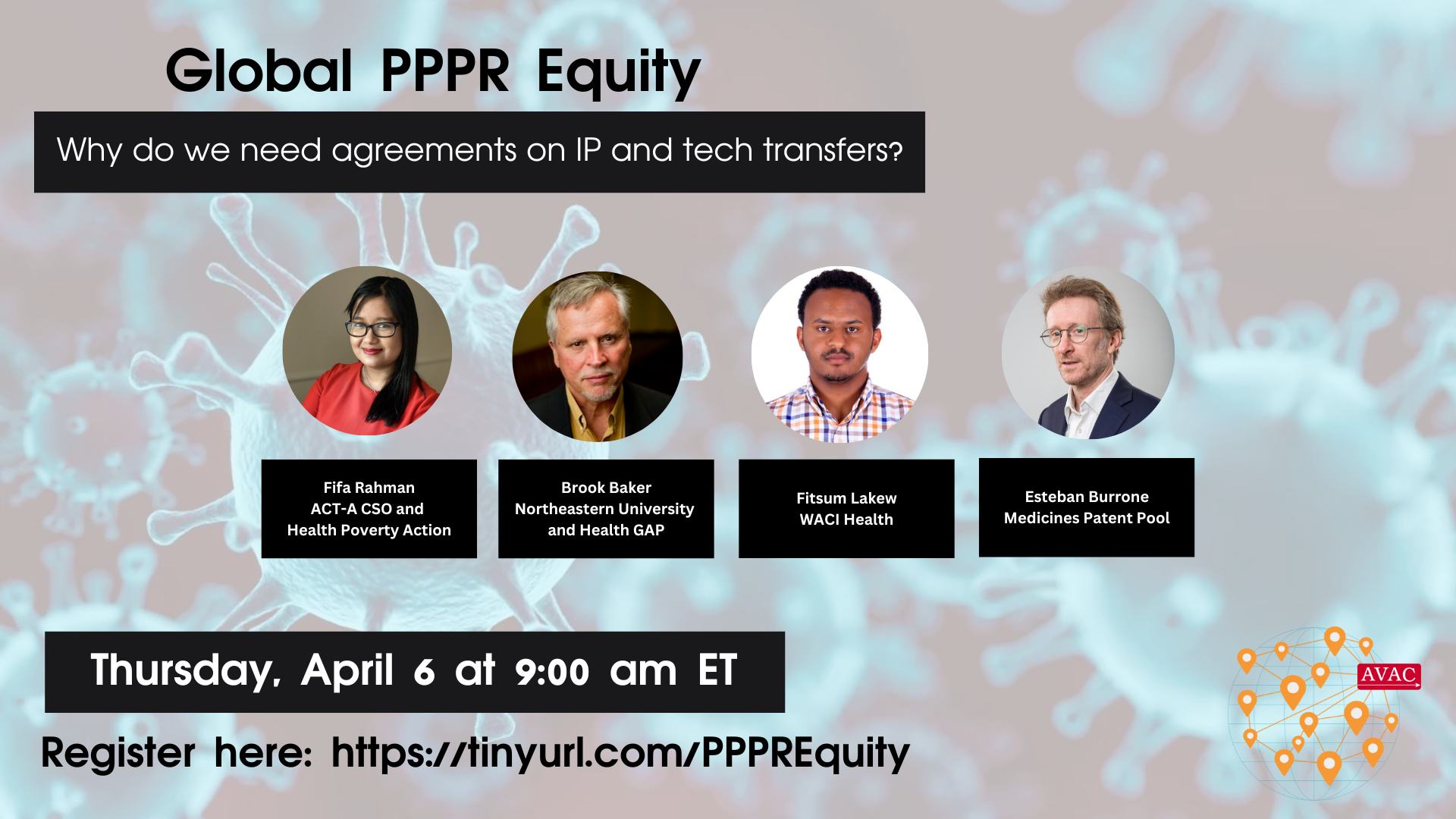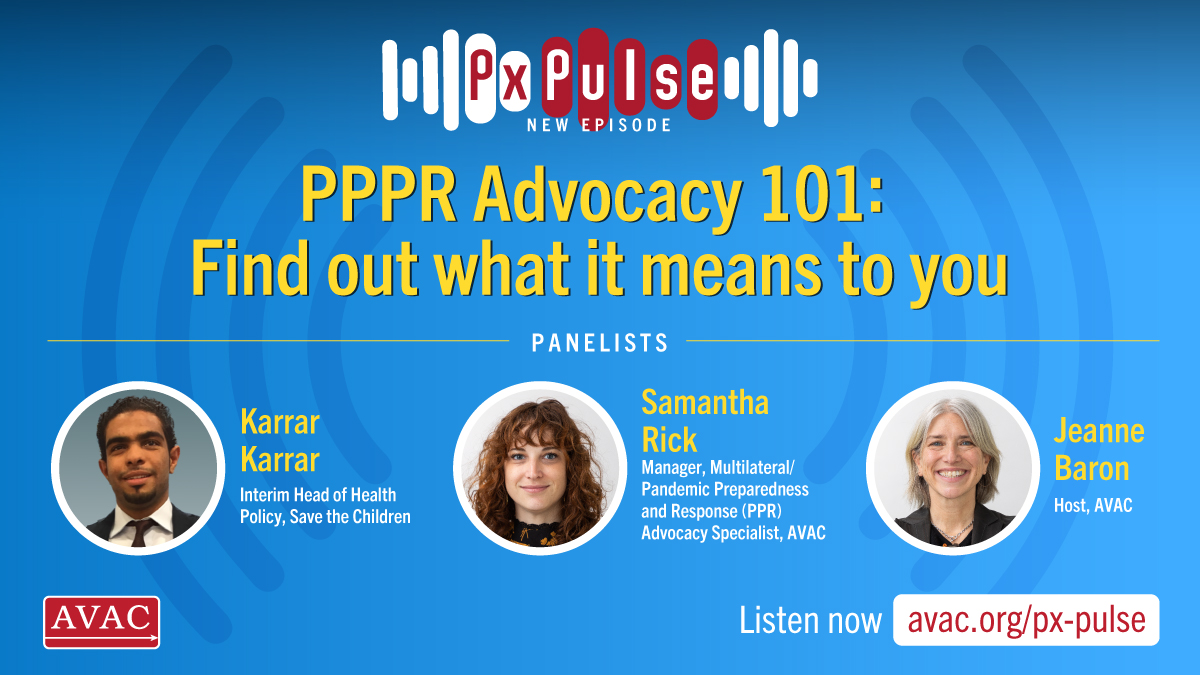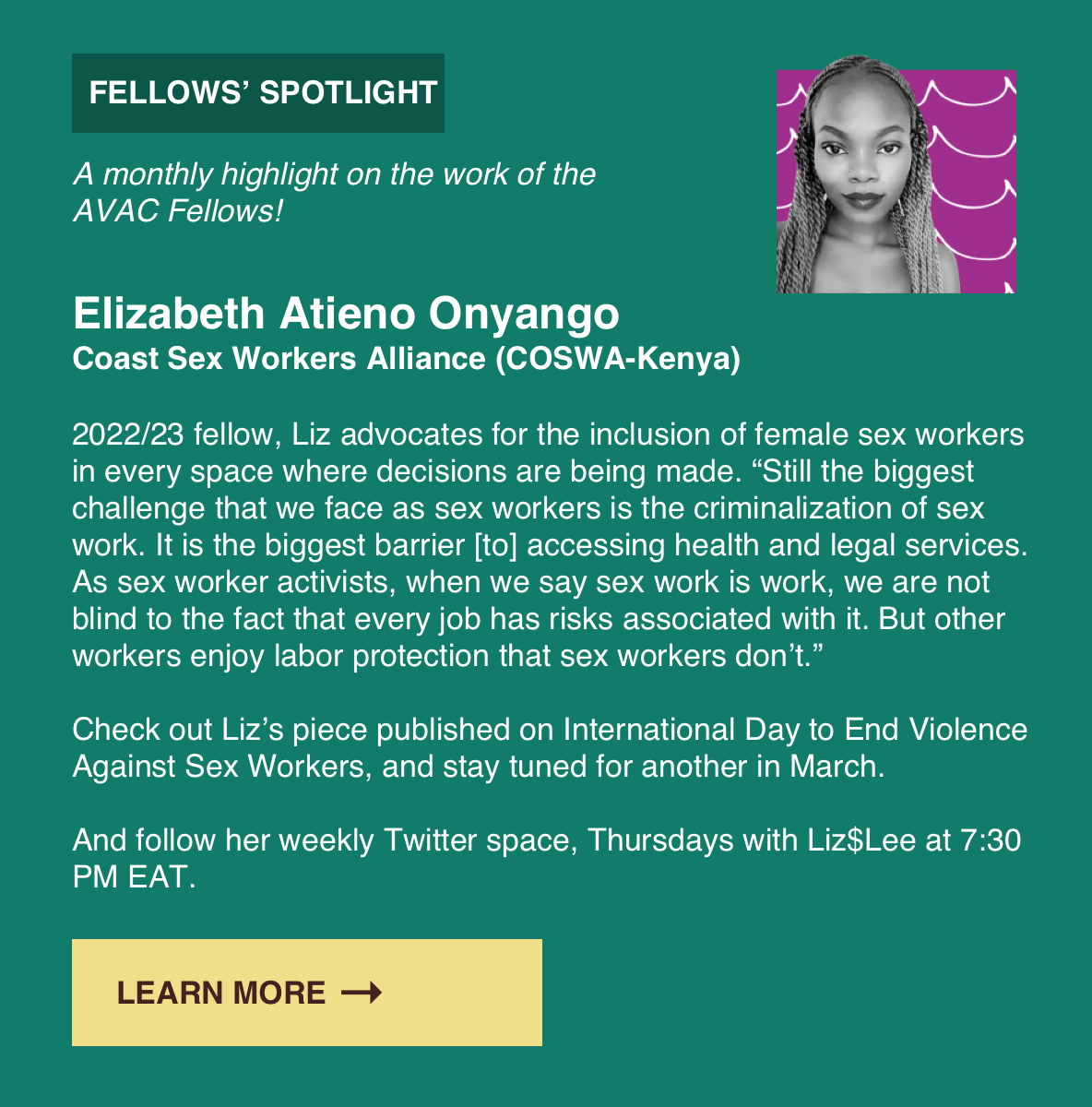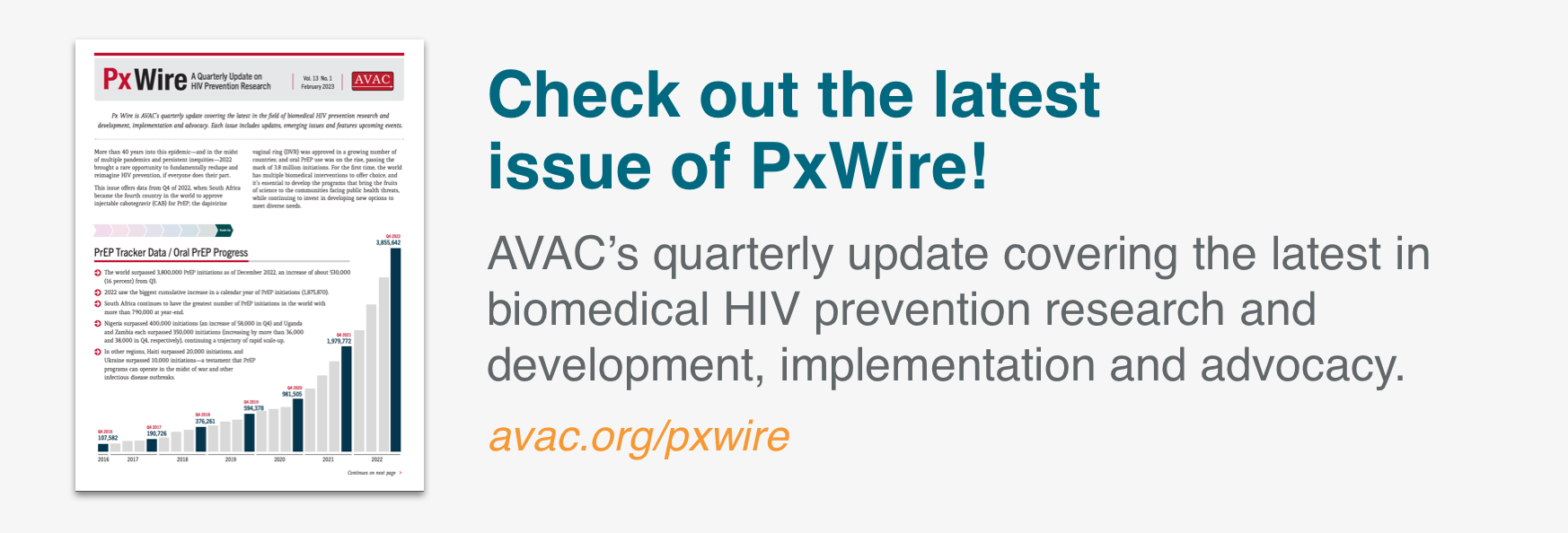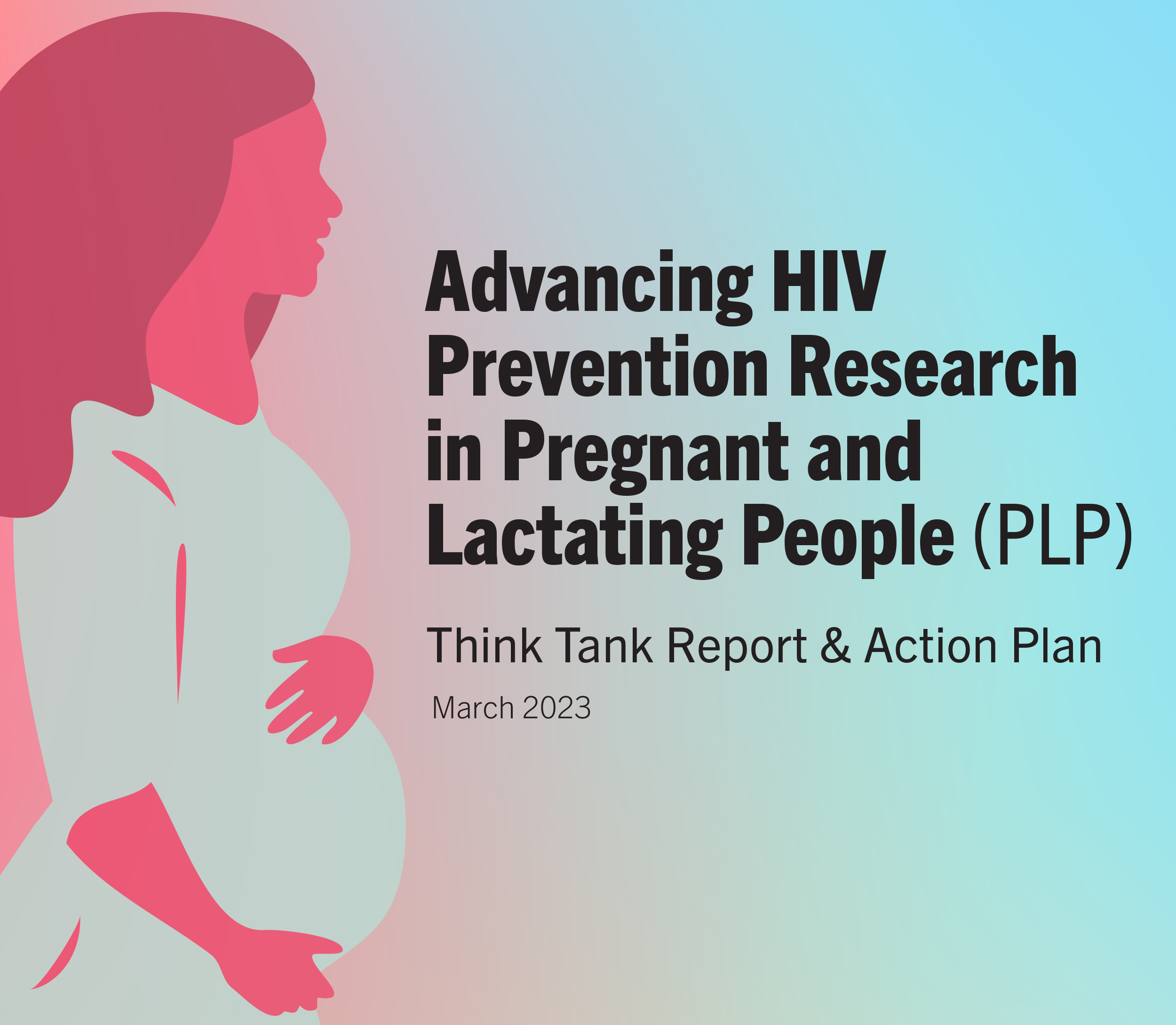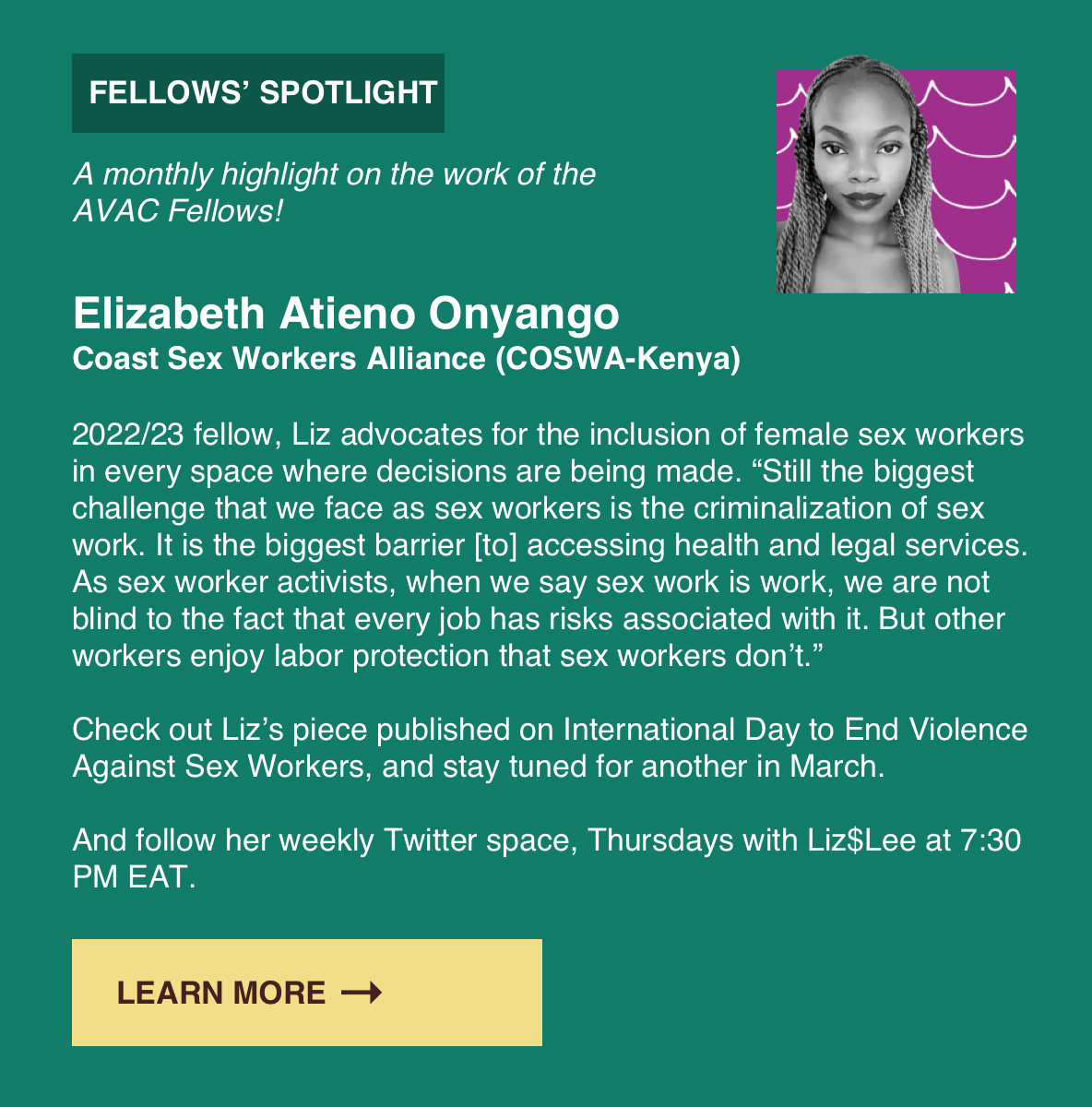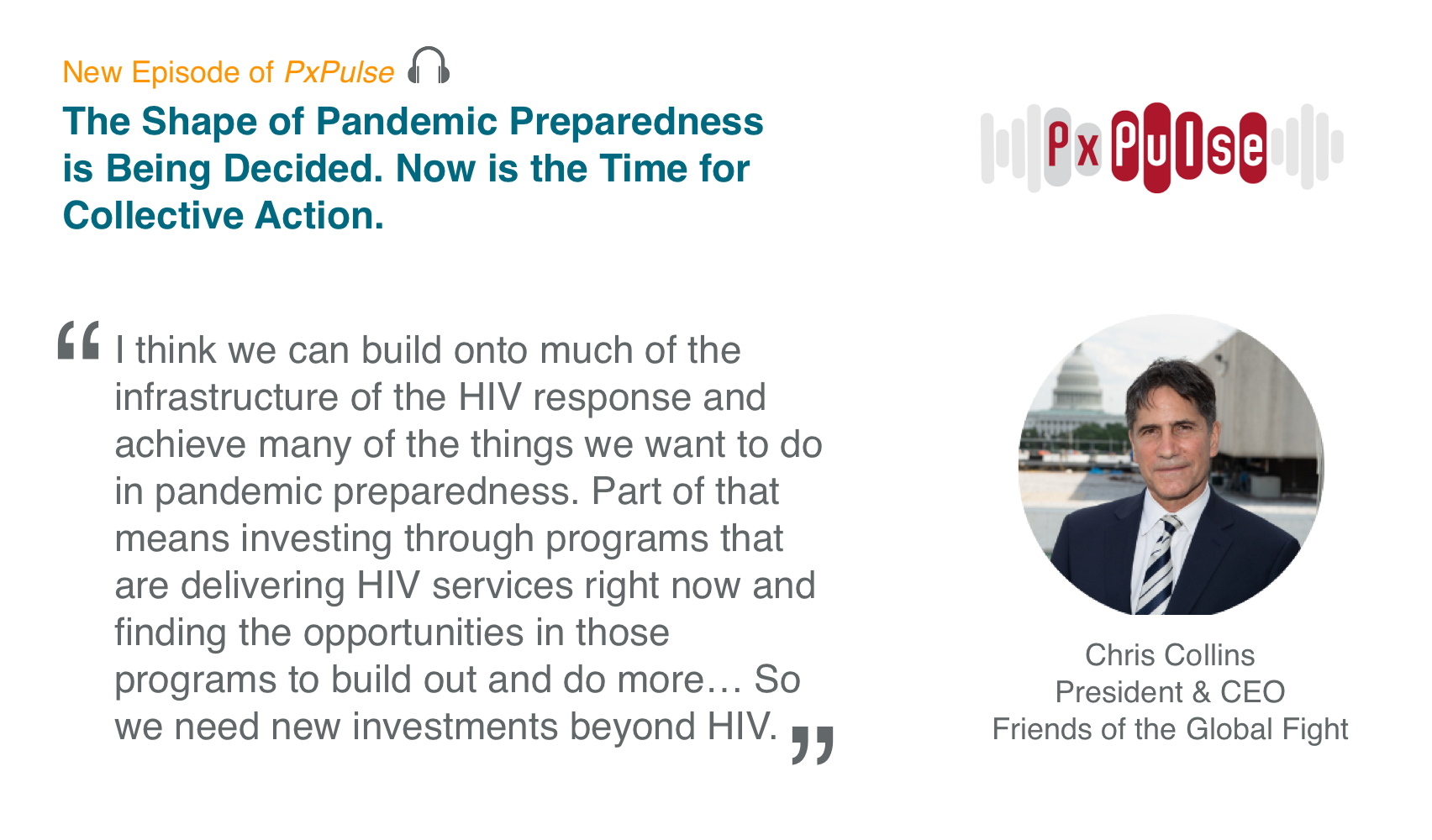Earlier this week the Medicines Patent Pool (MPP) announced the granting of three sublicenses to manufacture generic versions of injectable CAB for PrEP. All three manufacturers are based in India, and one of them (Cipla) is also planning to manufacture CAB for PrEP in South Africa. Join us Thursday, April 6 at 9:00 EDT for a webinar, Global PPPR Equity: Why do we need agreements on IP and Tech Transfers?, that will focus on the role of intellectual property, licensing agreements and tech transfer in the development and delivery of health interventions including vaccines, diagnostics or therapeutics. And we’ll explore how these issues fit into the ongoing negotiations of the Pandemic Accord that will be part of a new global architecture for Pandemic Prevention, Preparedness and Response (PPPR).
These new generic agreements for CAB for PrEP are an important step in accelerating affordable and equitable access to long-acting PrEP in low- and middle-income countries, but as history has shown, licenses are just one step.
HIV advocates know their history-making role of effectively fighting for more equitable access to prevention and treatment of HIV. It’s a legacy that has instilled equity as a guiding principle across global health. It’s a legacy that must be continually defended, and now it must be extended to agreements that will establish a global architecture for Pandemic Prevention, Preparedness and Response (PPPR), including the Pandemic Accord. Negotiations related to Intellectual property rights (IP), commitments on technology transfer and knowledge sharing are central to these agreements.
How quickly generic manufacturers can develop their capacity, how much investment it will take to do it, and at what price they might sell their finished products are all huge questions and the next steps in our advocacy.
And perhaps the biggest question for all stakeholders and new products is what will it take to build a sustainable market and deliver public health impact?
For background on the issues check out the Advocates’ Guide for Pandemic Preparedness and Response (PPPR) in 2023 and our podcast PPPR Advocacy 101: Find out what it means to you.
